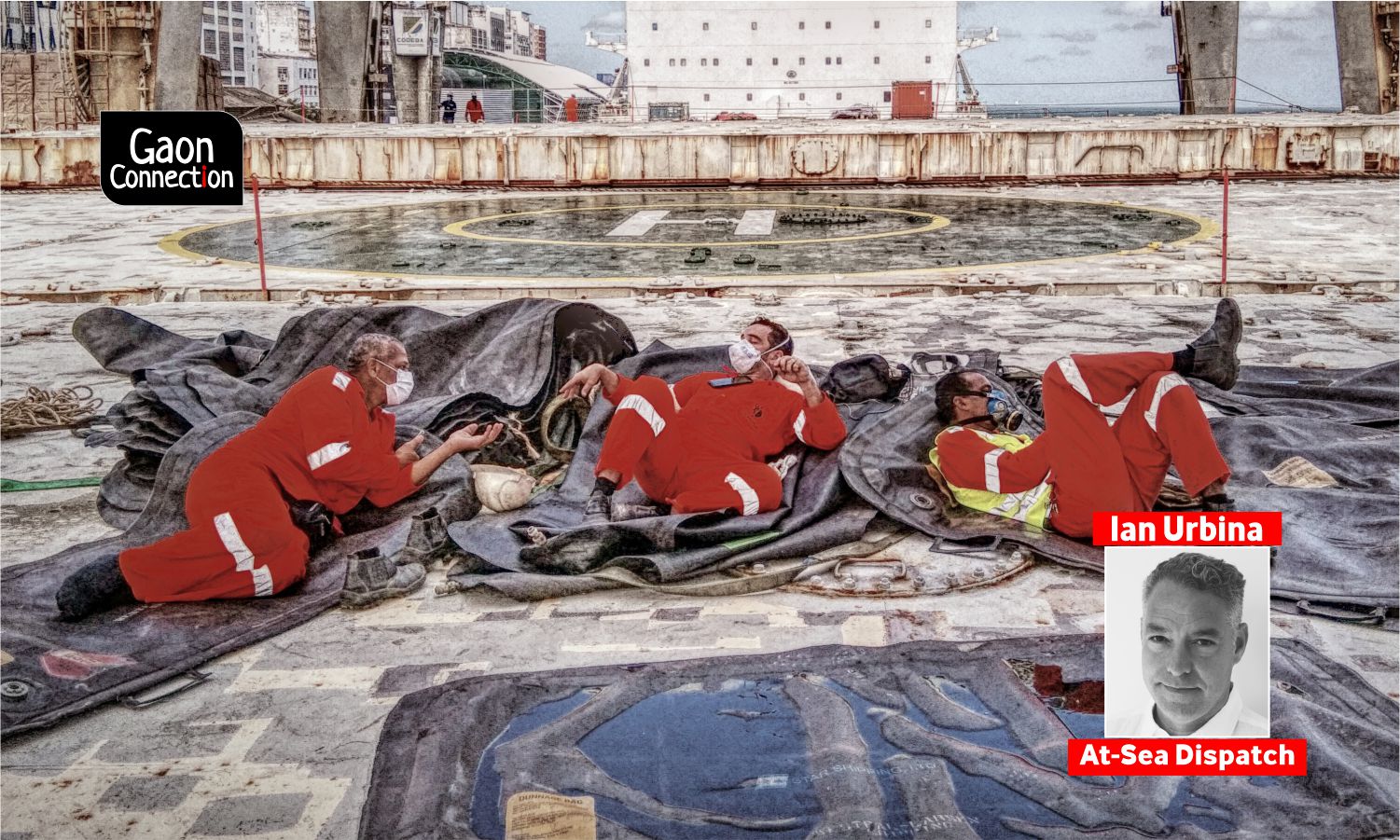There are a few factors that contribute to the urgent issue of stranded seafarers at sea. Among them are corporate negligence and political corruption, anaemia enforcement by shady flag registries that are supposed to hold shipowners accountable, tightened immigration controls that routinely trap stranded crews on decrepit ships, lax rules and a maritime bureaucracy designed more to protect the anonymity and secrecy of ship owners than to enable oversight and transparency of the industry.
Lacking clean water, fuel and food, not to mention cell service, legal help or the ability to speak the local language, crews such as those in Beirut typically have no money to get home. They don’t even have the immigration papers that will allow them to disembark.
On any given day, hundreds of ships and thousands of seafarers are in the same situation, but this always-acute problem has been worsened by the COVID-19 pandemic.
As supply chains halted across the globe, the approximately 100,000 seafarers due for crew change each month found themselves stuck in limbo due to closed borders and limited availability of flights.
Countries responded differently to the novel coronavirus, but not one had the seafarers in mind — they prioritised their populations’ health and economic prosperity.
As a result, the problem for seafarers was at once immediate — there were 20 cruise ships stranded in Manila Bay, the Philippines, overflowing dormitories and crews that were virtually abandoned around the world.
The issue kept getting compounded every month, as another set of seafarers reached the end of their contracts.
When the pandemic struck six months ago, less than 35 per cent of crew changes were taking place, according to the International Chamber of Shipping.
Flag states (the jurisdiction under whose laws the vessel is registered) have also been extremely flexible in creating exceptions to international regulation and have permitted extensions of contracts well beyond the limits stipulated in the Maritime Labour Convention. Where seafarers would normally have the right to repatriation after 11 months, it has now been stretched to 17 months. Hundreds of thousands of seafarers face complete uncertainty as to when they might return home and reunite with their long-suffering families.
The ITF Seafarers’ Trust — the charitable arm of the ITF, the largest seafarers union — launched an emergency fund in May to support initiatives to address the impact of COVID-19 on seafarers and to help maintain a certain level of welfare provision. The ITF has made grants in excess of £1.3 million to more that 50 grantees in 28 countries — ranging from support for testing and quarantine facilities, PPE and sanitary provisions in ports and operational support for seafarers centres.
The ITF launched the Still at Sea photography competition in August this year with a number of objectives, the first of which was to create a channel of communication from seafarers to the world ashore. This initiative, wherein they received 2,000 submissions in under a week, featured seafarers in photos detailing their current state at sea — mostly stoical and proud, sometimes humorous, but also frustrated and emotionally drained by the reality of missing family and critical events at home.
This competition sheds light on the deeper issue of maritime abandonment and the factors that make it so easy for vessel owners and operators to walk away from their responsibilities usually with impunity and often with life-or-death consequences for the crew that gets left behind.
Ian Urbina, a former investigative reporter for the New York Times, is the director of The Outlaw Ocean Project, a non-profit journalism organisation based in Washington, D.C., that focusses on reporting about environmental and human rights crimes at sea.


















